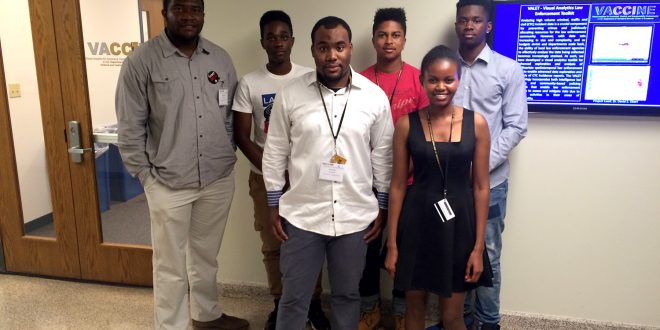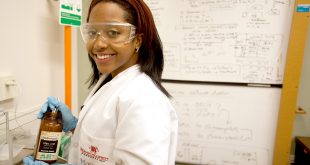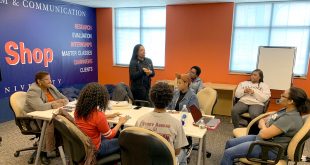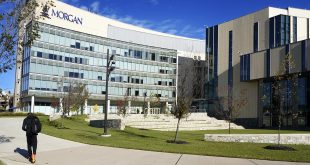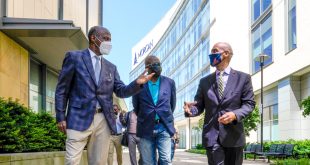Six students from Morgan State University (MSU) recently completed a week-long summer research program at VACCINE from July 19th-25th. The event was in conjunction with the Department of Homeland Security Summer Research Team Program for Minority Serving Institutions, which gave MSU students the ability to learn about the science of visual analytics through an immersive experience at the VACCINE Center. The students were housed on-campus at Purdue University and engaged in activities and presentations that helped them to better understand visual analytics and its real-world applications.
VACCINE student-led demonstrations of our tools and technology gave the MSU students the opportunity to get hands-on with VACCINE resources and the ability to ask questions about the center’s research. “Learning and interacting with the students here was eye-opening. You can tell everyone really loves what they’re doing, and they’re excited about it and excited to share what they are doing,” says MSU student Bridgit Kisko. As students in the STEM fields (science, technology, engineering, and math), the guests were able to learn more about skills that fit into their career interests—a sentiment felt by Cherif Haidara: “Dr. Abish Malik’s pitch on big data really made me more interested in focusing on my career goal, which is to be a data systems analyst and to extract raw data and transform it into data that can be used.”
From the time the students arrived on campus at the beginning of the week, many of them expressed that their knowledge of visual analytics was greatly expanded. Through various events, ranging from a Purdue campus tour to discussing social media analytics with one of the VACCINE students, the MSU participants were able to learn about the VACCINE research environment and culture in addition to visual analytics. For Alvin Ilechie, his experience in the lab helped him to realize the power of visual analytics. “Coming out here this week and staying here for five or six days let me see that what I’ve been doing in school is taking me somewhere…It’s going to truthfully change the world, in the way that they told us when we were younger. We can change the world.”
Original article from Purdue University.
To view original article, click here.
 Morgan State University Newsroom Morgan State University
Morgan State University Newsroom Morgan State University
